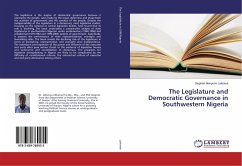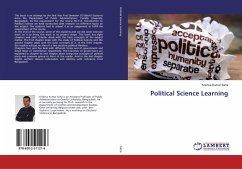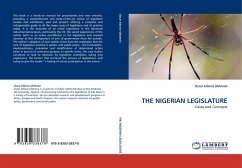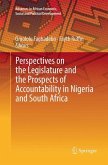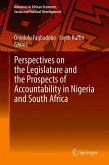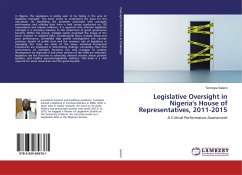The legislature is the engine of democratic governance because it represents the people. Laws made by the organ determine and shape both the activities of government and the conduct of the people. Despite the indispensability of the legislature in a democracy, most legislative studies, focusing on the national or central legislative bodies, have found that its role is declining. The book undertakes a comparative analysis of state legislatures in southwestern Nigerian under parliamentary (1960-1966) and presidential (1979-1983 and 1999-2003) systems of government. Specifically, it assesses the performance of their representational, oversight and lawmaking roles. The book reveals the declining role of the legislature in terms of lawmaking, representation, and oversight since independence. The attendant over-expansion of the power and influence of the executive and party elites pose serious threat to the existence of legislative houses and sustenance and consolidation of democracy. The prospects for legislative strengthening in Nigeria are likely to be complicated by the difficulty of constitutional reforms, the entrenched culture of executive and and party dominance among others.
Bitte wählen Sie Ihr Anliegen aus.
Rechnungen
Retourenschein anfordern
Bestellstatus
Storno

